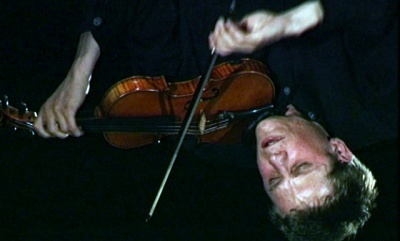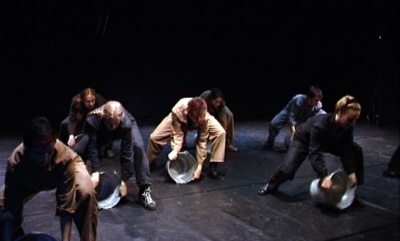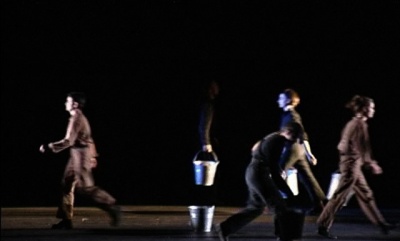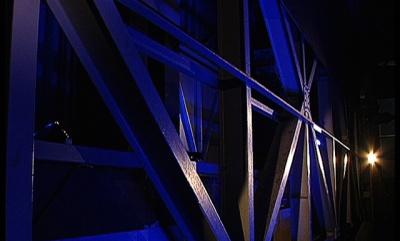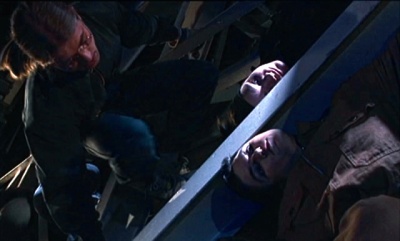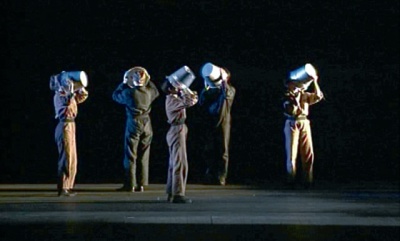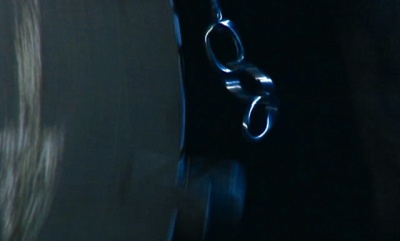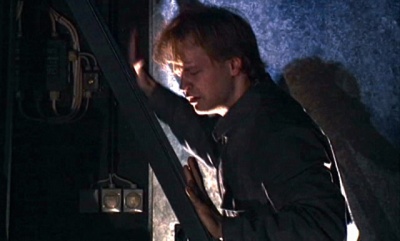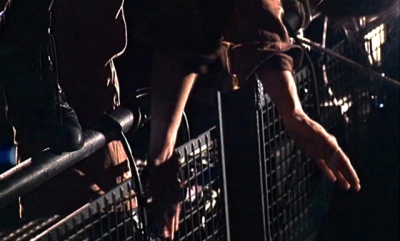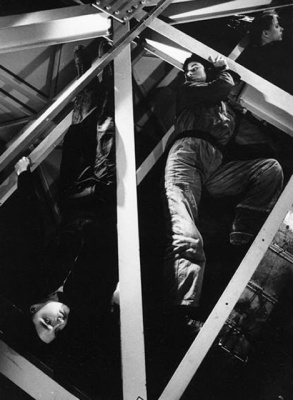1998 Songs of(f) Stage Dedicated to Mauricio Kagel
Project Direction, Concept and Staging
Helmi Vent
Project Partner
ASPEKTE-Festival Salzburg 1998
Performers
Chris Amrhein, Regina Blaschek, Richard Flür (Violin), Tissi Georg, Birgit Grössl, Christian Hornef (Piano), Bernard Lutz, Alexandra Pesold, Matthias Reichert, Elisabeth Riegler, Elena Rieser, Wilfried Seethaler, Miriam Stärk, Sabine Stoiber, Yuko Saito, Helmi Vent, Willi Weissenbrunner
Guest Performer
Lauren Newton (VoiceArt)
Projected Performance Video
Camera and Film Editing: Chris Amrhein
Video Film Production: Helmi Vent
Technical Direction
Chris Amrhein
Project Location
Großes Studio at the University Mozarteum Salzburg (Austria)
Performance
22 May 1998
A sound research project for the opening of the "22nd International Festival of Contemporary Music – ASPEKTE Salzburg", May 1998
DanceMusicTheaterLaboratory and VoiceArtist Lauren Newton
About the Project
The project began in the academic year 1996/1997 in several theoretical and practical 'corners' of everyday study life at the Hochschule Mozarteum: a block seminar on Concepts and Designs for SpaceSoundBody in the 20th Century; a first follow-up project on performance modes of a sound-and-body theater in basement and lavatory spaces, halls and staircases; a second project with short music and dance theater compositions on wooden, glass and metal doors, ventilation casings, pipes etc., often in connection with the playing of musical instruments, which was then audio-visually documented and subjected to alienation processes. A further impetus for the Songs of(f) Stage occurred as a result of our exploration of Mauricio Kagel's Instrumental Theater, continuing on into the current course entitled Mauricio Kagel – Music, Movement, Theater, Film.
Of the many figures who have put sounds and spaces in motion in the course of the 20th century, we ultimately got 'hung up' on Mauricio Kagel – in more than one sense of the word: in the course of the project work, we looked at a lot of things in an inverted position and thereby gained new perspectives of viewing, listening and understanding. First of all, we struggled with Kagel’s chamber music piece Sur Scène of 1959, then amused and amazed ourselves with the caricaturing absurdities of Repertoire from Staatstheater (1971), read up on and discussed reception history material, and finally went as far as to explore aesthetic fields of reflection up to and including Kagel’s ambiguous (or unambiguous) Nah und Fern worlds of 1995. His reading piece Composition und Decomposition served as an important impulse for a foray through post-modern philosophical positions, always accompanied by the issue of the aesthetic criteria of our decade. Many of the questions we investigated remained open.
Songs of(f) Stage is an interim result of an attempt to engage in conversation with the hidden performing spaces of a theater, using the means they provide. The off-stage area assumes a leading role in the entire piece and whenever it looks likes the roles are going to shift, it resumes its auditory and visual prominence through wandering images and sounds, again and again.
It is very difficult to pin down influences, especially in the Heterophonie (Kagel 1961) of one’s own development. One thing is definite: the piece would not have happened without Kagel's Improvisation ajoutée, in an overall sense. Between ajouter and redonner:
Songs of(f) Stage – dedicated to Mauricio Kagel.
Helmi Vent, 1998
Lectures/Seminars on the Project
- 24–28 February 1997 – Block Seminar
Concepts and Designs for ‘Space-Sound-Body’ in the 20th Century - WS 1998–99
Mauricio Kagel – Music, Movement, Theater, Film
In reference to the book of the same name by Dieter Schnebel, Cologne, 1970


 Helmi Vent
Helmi Vent

